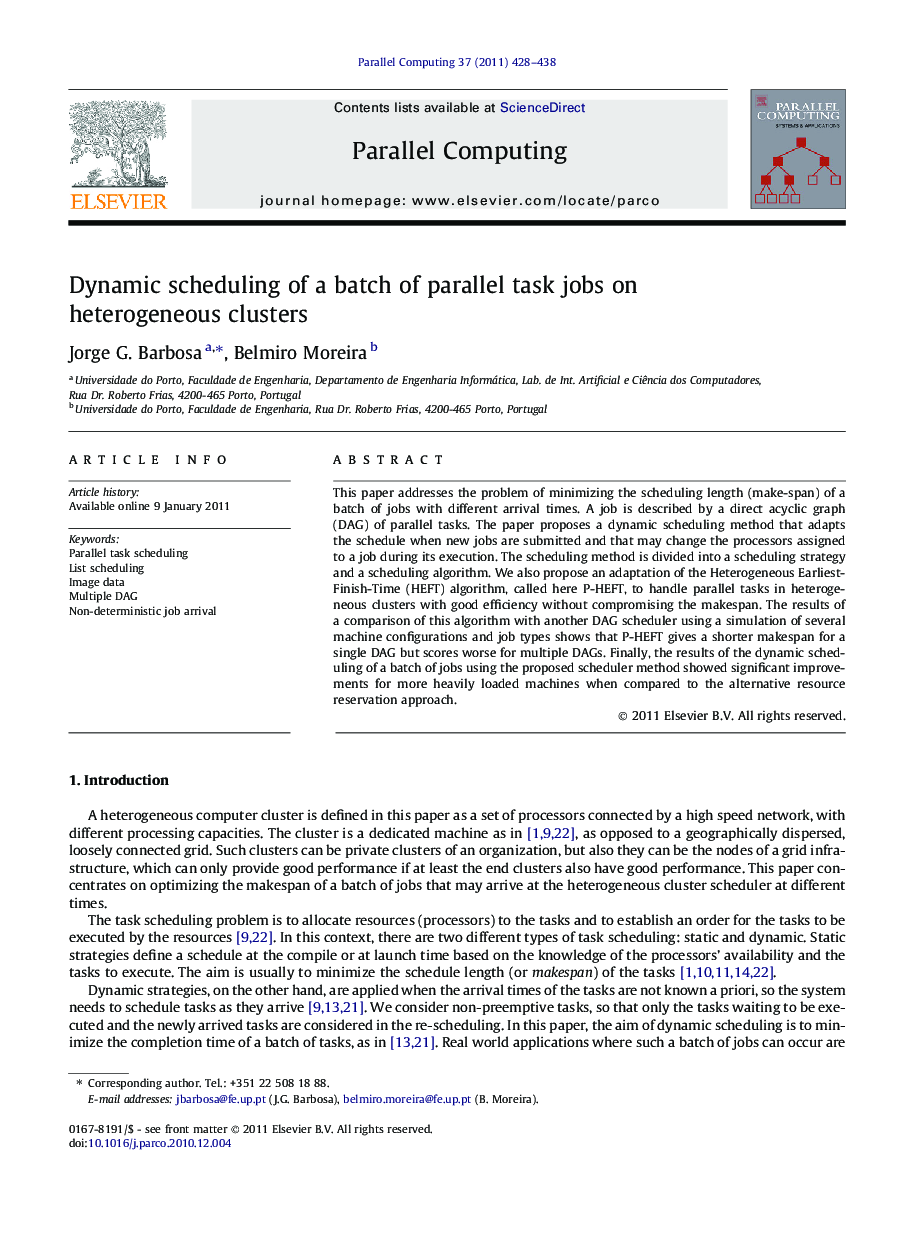| کد مقاله | کد نشریه | سال انتشار | مقاله انگلیسی | نسخه تمام متن |
|---|---|---|---|---|
| 524184 | 868566 | 2011 | 11 صفحه PDF | دانلود رایگان |

This paper addresses the problem of minimizing the scheduling length (make-span) of a batch of jobs with different arrival times. A job is described by a direct acyclic graph (DAG) of parallel tasks. The paper proposes a dynamic scheduling method that adapts the schedule when new jobs are submitted and that may change the processors assigned to a job during its execution. The scheduling method is divided into a scheduling strategy and a scheduling algorithm. We also propose an adaptation of the Heterogeneous Earliest-Finish-Time (HEFT) algorithm, called here P-HEFT, to handle parallel tasks in heterogeneous clusters with good efficiency without compromising the makespan. The results of a comparison of this algorithm with another DAG scheduler using a simulation of several machine configurations and job types shows that P-HEFT gives a shorter makespan for a single DAG but scores worse for multiple DAGs. Finally, the results of the dynamic scheduling of a batch of jobs using the proposed scheduler method showed significant improvements for more heavily loaded machines when compared to the alternative resource reservation approach.
Research highlights
► HEFT version for parallel task scheduling.
► Comparison in terms of efficiency and makespan of two single DAG schedulers.
► A less efficient algorithm achieves shorter makespans for single DAG scheduling.
► A more efficient algorithm achieves shorter makespans for several concurrent DAGs.
► Non-reservation policy improves performance significantly for heavily loaded machines.
Journal: Parallel Computing - Volume 37, Issue 8, August 2011, Pages 428–438